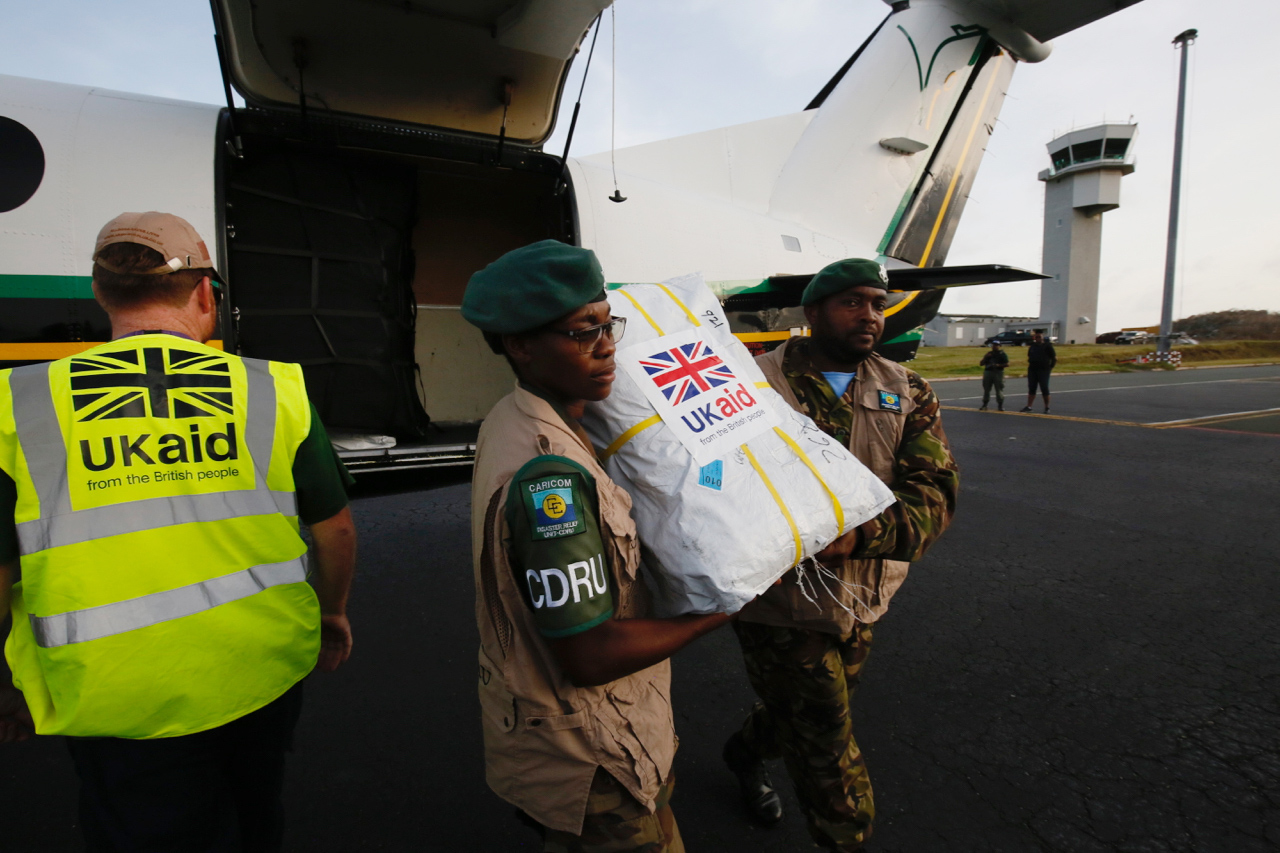The UK government’s Foreign Commonwealth and Development Office (FCDO) has recently released a landmark paper on Health Systems Strengthening (HSS). The paper articulates the rationale for strengthening health systems and outlines the FCDO approach comprehensively and systematically. This comes in at a critical time with unprecedented interest and investment in Global Health precipitated by COVID-19.
The scope of the paper is extensive and ambitious in its objectives, especially considering recent deep cuts and an expansion of the geographic scope of UK Aid as the new department seeks to take advantage of the extensive foreign office network. Ironically, the impressive comprehensiveness of the paper may also be its limitation, since if everything is a priority, nothing is a priority and the paper’s ability to shape the UK global health spending may be undermined.
Nevertheless, we congratulate the FCDO on the paper and offer three recommendations for implementation: 1) further clarify strategic priorities, for example by articulating a poverty focus and empowering low-and middle-income governments to set the HSS agenda; 2) place greater emphasis on joined-up approaches to avoid fragmenting health systems; and 3) set up a monitoring framework to ensure impact.
What’s in the paper?
The first section of the paper makes a clear and compelling pitch for HSS to play a more central role in UK’s global health policy. It emphasises the multifaceted, long-term and typically pro-equity impacts on human population health while also touching on the importance of the human-animal interface (One Health) and noting the bidirectional interactions with non-health sectors (e.g., climate, social protection). Most importantly, the paper connects Universal Health Coverage and the need for effective resilient health systems to the COVID-19 response and reinvigorated interest in Global Health Security. In doing so it makes the link not only to resilience against future pandemics but also emerging health threats such as antimicrobial resistance and other exogenous changes such as demographic shifts and increasing urbanisation.
The main body of the paper goes on to detail the FCDO’s approach to HSS, cruising through a beguiling array of principles (seven), focus areas (thirteen) and myriad specific mechanisms for achieving impact including through bilateral and multilateral programmes, Global Health Initiatives such as the Global Fund, and through other government departments. The need for evidence-informed priority setting and explicit health benefits packages are mentioned repeatedly, something CGD has advocated for since before the What’s In What’s Out book and continues to champion through the International Decision Support Initiative (IDSI). A thread of “Global Britain” also runs through the paper; highlighting opportunities to draw on British expertise and build on a proud British history of strong health systems (NHS), as well as noting the potential role of (and benefits to) UK PLC.
Overall, the paper is impressively comprehensive and ambitious, displaying a welcome commitment of the UK to sustainable development of domestic health systems.
Three steps to enable successful implementation
1) If everything is a priority, nothing is a priority: FCDO must clearly prioritise at the strategic and country portfolio level
The position paper develops a complex approach, which addresses all aspects of HSS at every level of country income, as well as HSS’ interaction with all wider aspects of global health. It has included everything, and by doing so, lacks the clear prioritisation needed to enable effective implementation.
At the portfolio level, the UK Aid health spend is made up of allocations to health teams and programmes in the new Global Health Directorate, Regional Divisions, Research and Evidence Division, Country Offices, and other government departments. Across these there are differences in spending through multilateral initiatives, on research into new health technologies, on single disease control or eradication efforts—and so on. At the country level, an FCDO programme that sought to strengthen complex health systems, integrate them with large vertical funds, build global health security, address sexual and reproductive health and rights (commendably mentioned repeatedly through the document), and the environmental and social determinants of ill health would be hugely ambitious. Inevitably the budget wouldn’t stretch to this, and trade-offs would be made.
The document, however, does not offer guidance on how to prioritise between such choices. Indeed, the problem is analogous to the need for careful priority setting when designing health benefits packages. If Ministries of Health do not prioritise and include too many interventions, the result is implicit rationing and poor health system performance. The same is true for FCDO: a lack of deliberate priority setting means prioritisation happens ad hoc and the result will be less health for the money. The need for effective priority setting is even more important in the context of budget cuts and expanding geographic ambition.
Two options that would support strategic prioritisation are: i) restrict geographical footprint, selected through a poverty focus in country portfolio allocations and ii) put country government partners at the centre of strategic thinking, rather than as one element in a list of stakeholders. Firstly, as others in CGD have noted, the UK has a strong track record of focusing Official Development Assistance where it is most needed, though in recent years this appears to be slipping. HSS investments in low-income countries often can realise significant and long-term health gains, for example through scaling up community health workers or strengthening public health functions. FCDO should therefore consider being explicit in prioritising HSS investments in low-income countries. Secondly, we suggest that it is partner country governments that should be placed at the centre of strategic planning, working to prioritise from the long list of objectives in the HSS position paper. They are, after all, responsible for the systems to be strengthened. Country engagement is included in the position paper, but it comes after the discussion the various global organisations and initiatives and the role of partner governments as the lead decision maker in country HSS could be more clearly articulated.
2. Fragmentation of health systems is a major problem in many low-income countries: FCDO could do more to ensure a joined-up approach
The position paper sets out a positive vision for HSS. However, historically, donors have also played a role in undermining health systems. It is vital that the position paper doesn’t become a siloed effort of the Health Systems Strengthening hub, but cuts across FCDO and wider departments. High level policy decisions can undermine any effort to have long term reliable system funding. The recent UK aid cuts for instance, due to their scale and speed will have harmed health system planning, and even if aid rapidly returns to 0.7 percent, the UK may no longer be seen as a reliable long term partner of health systems.
Different funding streams can also undermine the HSS goal. The UK continues to be a major funder of vertical programmes such as the Global Fund for instance. This has contributed to major progress on HIV, TB and Malaria, but has been criticised for creating parallel health systems and fragmenting priority setting, financing, planning and delivery. The HSS position paper rightly calls for FCDO to use its board positions to seek the integration of these funding streams into domestic priorities. Lessons can be learnt from country case studies (Zambia, Kenya) but this remains a very challenging objective and will need the backing of a range of major donors. Novel approaches need to be considered, for instance integrating and standardising priority setting mechanisms for all funding streams at the country level, even if funding itself remains fragmented.
One practical option here is for FCDO to support building domestic capacity in explicit, transparent, and evidence-based prioritisation systems and processes, such as health technology assessment agencies, pioneered by the UK’s NICE. The HSS strategy rightly calls for the development of explicit packages of health services nine times in the document, but we argue that this will only achieve value for money, equity and sustainability if the FCDO invests in strong priority setting institutions.
3. There is no comprehensive way to monitor HSS financing across UK Aid: FCDO needs to set HSS targets and monitor them
Due to the complexity of the position paper and the complexity of FCDO, to be sure the position paper is implemented there needs to be an HSS-specific monitoring framework with targets and indicators, and an appropriate governance structure that represent all major funding streams to ensure this becomes more than just a great policy document.
Conclusion
FCDO should be congratulated on an excellent position paper, the first of its kind. We encourage officials and Ministers to: further clarify strategic priorities, for example by articulating a poverty focus and empowering low-and middle-income governments to set the HSS agenda; to actively seek to reduce the fragmentation caused by its diverse funding mechanisms; and to set clear indicators and monitor progress.
Disclaimer
CGD blog posts reflect the views of the authors, drawing on prior research and experience in their areas of expertise. CGD is a nonpartisan, independent organization and does not take institutional positions.





